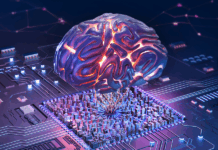see below for english version
Wie viel KI braucht ein Unternehmen, und wie viel Programmieraufwand ist dafür wirklich nötig?
Tatsächlich scheitern viele KI-Projekte nicht an der Technik, sondern an fehlender Zeit, Expertise oder Ressourcen. Besonders kleine und mittlere Unternehmen (KMU) stehen oft vor der Frage: Wie starten wir mit KI, ohne gleich ein Data-Science-Team aufzubauen?
Die Antwort: Mit AutoML und No-Code-Tools. Im Workshop „Hürden in der KI-Projektumsetzung meistern mit No-Code und AutoML“, veranstaltet vom European Digital Innovation Hub Applied Artificial Intelligence and CyberSecurity (EDIH-AICS) am 22. Juli 2025 im CyberForum, zeigten die Expert:innen Katharina Strecker und Kai Binder vom Zentrum für Sonnenenergie- und Wasserstoff-Forschung Baden-Württemberg (ZSW), wie der Einstieg in KI auch ohne Programmierkenntnisse gelingt, und das alles praxisnah, effizient und überraschend einfach.
AutoML: Wenn Fachwissen mehr zählt als Programmierkenntnisse
In vielen KI-Anwendungen – etwa bei Textanalyse oder Bildgenerierung – lassen sich vortrainierte Modelle wie GPT direkt einsetzen. Für spezifischere Aufgaben wie Anomalieerkennung, vorausschauende Wartung oder individuelle Prognosen reicht das jedoch oft nicht aus. Hier muss ein Modell auf eigene Daten trainiert werden, was tiefes technisches Know-how erfordert und viele Ressourcen verlangt.
AutoML setzt genau dort an: Die Methode richtet sich an Fach- und Domänenexpert:innen, die zwar über tiefes Branchenwissen, aber nicht unbedingt über KI- oder Programmierkenntnisse verfügen. AutoML übernimmt viele der komplexen Schritte, etwa die Datenvorbereitung, das Erkennen relevanter Muster und die optimale Einstellung des Modells. So entstehen schnell und ohne großen Aufwand zuverlässige, passgenaue KI-Lösungen – ideal für KMU, öffentliche Einrichtungen oder spezialisierte Fachabteilungen.
Vier Schritte zum Training eigener KI-Modelle
Der Trainingsprozess gliedert sich in vier Schritte:

- Datenaufbereitung
Zuerst werden Daten gesammelt, bereinigt und aufbereitet, denn Qualität und Quantität der Daten bestimmen den späteren Erfolg. - Modellauswahl
Danach wird die passende Modellarchitektur ausgewählt: Passende Algorithmen oder Netzwerkarchitekturen werden ausgewählt. - Training und Optimierung
Das Modell wird mit den vorbereiteten Daten trainiert und Hyperparameter werden automatisch oder manuell angepasst, bis die Performance stimmt. - Modellbewertung
Zuletzt erfolgt die Bewertung der Modellleistung anhand fachlicher Kriterien, um sicherzustellen, dass das Ergebnis im Praxiseinsatz zuverlässig funktioniert. KI-Wissen ist dafür kaum nötig: Entscheidend ist, ob das Modell im konkreten Anwendungskontext zuverlässig arbeitet.
Selbst KI-Modelle trainieren mit der No-Code Plattform KI-Lab.EE
Auch große Unternehmen wie Amazon oder Google setzen auf eigene AutoML-Plattformen. Im Workshop hatten die Teilnehmenden die Gelegenheit, selbst aktiv zu werden – ganz ohne Programmierkenntnisse. Sie nutzten die No-Code Plattform KI-Lab.EE um einen Datensatz mit Wetter- und Stromerzeugungsdaten aus mehreren Jahren hochzuladen. Im benutzerfreundlichen Interface wählten sie relevante Parameter aus und trainierten ein Modell, das vorhersagt, wann Solarpanels ausreichend Sonnenenergie erzeugen können, und wann nicht. Solche Vorhersagen können beispielsweise die Energieplanung deutlich effizienter machen.
Neugierig geworden? Das No-Code Tool KI-Lab.EE ist über EDIH-AICS kostenfrei nutzbar. Interessierte können kostenlos ein Konto auf der Plattform erstellen, eigene Daten hochladen und ein eigenes Modell trainieren. Bei Fragen steht das Team des ZSW Baden-Württemberg zu Verfügung: kilab-ee@zsw-bw.de
Der European Digital Innovation Hub Applied Artificial Intelligence and CyberSecurity (EDIH-AICS)
Der EDIH-AICS ist ein europäisches Projekt, das darauf abzielt, Künstliche Intelligenz und Cybersicherheit in den Bereichen Produktion, Mobilität, Energie, Handel und Dienstleistungen sowie bei Kommunen europaweit zu stärken und voranzubringen.
Gemeinsam mit exzellenten Partnern aus der erweiterten TechnologieRegion Karlsruhe bietet das CyberForum Angebote für lokale, nationale und europäische kleine und mittlere Unternehmen (KMU), Startups und Organisationen des öffentlichen Sektors an, um ihre Unternehmen zu digitalisieren.
Das Projekt wird durch das Rahmenprogramm Digital Europe (DIGITAL) der Europäischen Union unter der Grant Agreement Nummer 101083994 gefördert.


Using AI instead of programming: How SMEs can get started with AutoML
How much AI does a company need, and how much programming effort is really required?
In fact, many AI projects fail not because of the technology, but because of a lack of time, expertise or resources. Small and medium-sized enterprises (SMEs) in particular are often faced with the question: How do we get started with AI without immediately building a data science team?
The answer: with AutoML and no-code tools. In the workshop ‘Overcoming hurdles in AI project implementation with no-code and AutoML’, hosted by the European Digital Innovation Hub Applied Artificial Intelligence and CyberSecurity (EDIH-AICS) on 22 July 2025 at CyberForum, experts Katharina Strecker and Kai Binder from the Centre for Solar Energy and Hydrogen Research Baden-Württemberg (ZSW) showed how to get started with AI even without programming knowledge, in a practical, efficient and surprisingly simple way.
AutoML: When expertise counts more than programming skills
In many AI applications – such as text analysis or image generation – pre-trained models such as GPT can be used directly. However, this is often not sufficient for more specific tasks such as anomaly detection, predictive maintenance or individual forecasts. In these cases, a model must be trained on proprietary data, which requires in-depth technical expertise and considerable resources.
This is exactly where AutoML comes in: The method is aimed at subject matter experts and domain experts who have in-depth industry knowledge but not necessarily AI or programming skills. AutoML takes care of many of the complex steps, such as data preparation, identifying relevant patterns and optimising the model settings. This results in reliable, tailor-made AI solutions quickly and without great effort – ideal for SMEs, public institutions or specialised departments.
Four steps to training your own AI models
The training process is divided into four steps:
- Data preparation
First, data is collected, cleaned and prepared, because the quality and quantity of the data determine the subsequent success. - Model selection
The appropriate model architecture is then selected: suitable algorithms or network architectures are chosen. - Training and optimisation
The model is trained with the prepared data and hyperparameters are adjusted automatically or manually until the performance is right. - Model evaluation
Finally, the model performance is evaluated based on technical criteria to ensure that the result works reliably in practice. AI knowledge is hardly necessary for this: the decisive factor is whether the model works reliably in the specific application context.
Train AI models yourself with the no-code platform KI-Lab.EE
Even large companies such as Amazon and Google rely on their own AutoML platforms. In the workshop, participants had the opportunity to get hands-on experience – without any programming knowledge. They used the no-code platform KI-Lab.EE to upload a dataset containing weather and electricity generation data from several years. Using the user-friendly interface, they selected relevant parameters and trained a model that predicts when solar panels can generate sufficient solar energy and when they cannot. Such predictions can, for example, make energy planning significantly more efficient.
Interested? The no-code tool KI-Lab.EE can be used free of charge via EDIH-AICS. Interested parties can create an account on the platform free of charge, upload their own data and train their own model. If you have any questions, please contact the ZSW Baden-Württemberg team: kilab-ee@zsw-bw.de
The European Digital Innovation Hub Applied Artificial Intelligence and CyberSecurity (EDIH-AICS)
The EDIH-AICS is a European project that aims to strengthen and advance artificial intelligence and cyber security in the fields of production, mobility, energy, trade and services, as well as in local authorities across Europe.
Together with excellent partners from the extended Karlsruhe TechnologyRegion, CyberForum offers services for local, national and European small and medium-sized enterprises (SMEs), start-ups and public sector organisations to help them digitise their businesses.
The project is funded by the European Union’s Digital Europe (DIGITAL) framework programme under grant agreement number 101083994.




![Rückblick 2025: KI-Alltag, Green Skills und digitale Plattformstrategien [Teil 4] Rückblick 2025](https://techtag.de/wp-content/uploads/2016/12/Jahresrueckblick-Digitalwirtschaft-Teil-4-218x150.png)
![Rückblick 2025: Leadership, Bildung und digitale Verantwortung [Teil 3] Jahresrückblick 2025](https://techtag.de/wp-content/uploads/2016/12/Jahresrueckblick-Digitalwirtschaft-Teil-3-218x150.png)















![Rückblick 2025: KI-Alltag, Green Skills und digitale Plattformstrategien [Teil 4] Rückblick 2025](https://techtag.de/wp-content/uploads/2016/12/Jahresrueckblick-Digitalwirtschaft-Teil-4-100x70.png)
![Rückblick 2025: Leadership, Bildung und digitale Verantwortung [Teil 3] Jahresrückblick 2025](https://techtag.de/wp-content/uploads/2016/12/Jahresrueckblick-Digitalwirtschaft-Teil-3-100x70.png)

![Rückblick 2025: Bildungswandel, KI-Pflicht und Ökointelligenz [Teil 2] Jahresrückblick 2025](https://techtag.de/wp-content/uploads/2016/12/Jahresrueckblick-Digitalwirtschaft-Teil-2-100x70.png)